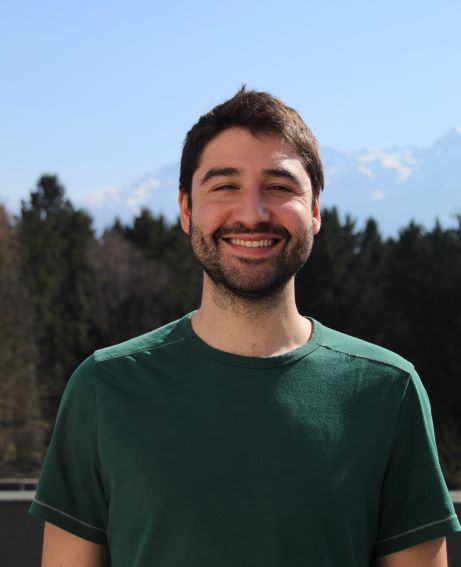 Lorenzo MARIANO received the 2021 doctorate prize of the I-MEP2 Doctoral School, in the 2MGE specialty. This prize was awarded to him and three other laureates during the I-MEP2 Doctoral Day on June 30, 2022.
Lorenzo MARIANO received the 2021 doctorate prize of the I-MEP2 Doctoral School, in the 2MGE specialty. This prize was awarded to him and three other laureates during the I-MEP2 Doctoral Day on June 30, 2022.Lorenzo MARIANO did his thesis work at the SIMaP laboratory, in the PM group, under the supervision of Marc De BOISSIEU and Roberta POLONI. His thesis entitled "Ab initio study of materials with spin crossover for applications in gas adsorption" was defended on March 19, 2021.
Summary of Lorenzo MARIANO's thesis work:
Despite many efforts towards the use of renewable energies, fossil fuels still dominate the world's energy production, which results in significant greenhouse gas emissions into the atmosphere. The use of highly porous and chemically modifiable solid adsorbents such as metal-organic frameworks (MOFs) has attracted a lot of interest over the past 20 years for their potential application in gas separation and carbon capture technologies.
In my thesis work, we studied from a theoretical point of view MOFs whose high affinity for absorbed molecules can be modified by thermal treatment. With the appropriate choice of ligands and metal centers, MOFs with a heat-induced spin crossover and a concomitant change in adsorption properties can be developed to allow for more energy efficient gas capture and release.



